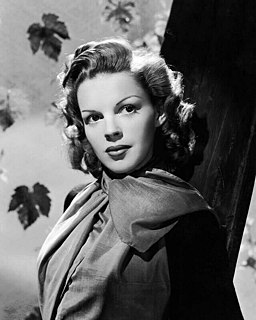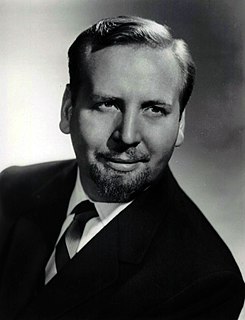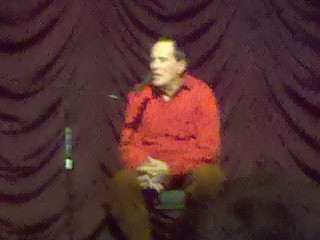A Quote by Judy Garland
In the silence of night I have often wished for just a few words of love from one man, rather than the applause of thousands of people.
Related Quotes
Applause is an instinctive, unconscious act expressing the sympathy between actors and audience. Just as our art demands more instinct than intellect in its exercise, so we demand of those who watch us an apppreciation of the simple unconscious kind which finds an outlet in clapping rather than the cold intellectual approval which would self-consciously think applause derogatory. I have yet to meet the actor who was sincere in saying that he disliked applause.
You know how it is in the symphony when you are listening to the symphony, the last notes die away, and there's often a beat of silence in the auditorium before the applause begins. It's a very full and pregnant silence. Now theology should bring us to live into that silence, into that pregnant pause.
I wasn't prepared for death. Nobody is. You lose someone you love more than you love yourself, and you get a crash course in mortality. You lie awake night after night, wondering if you really believe in heaven and hell and finding all kinds of reasons to cling to faith, because you can't bear to believe they aren't out there somewhere, a few whispered words of a prayer away.
I try to remember dreams, and occasionally I'll make a note or two in a notebook if it's something extra interesting. They do mean quite a lot to me, and they don't happen all that often. In other words, I don't have some kind of loud, Technicolor dream every night. But a few times a month, I'll have a rather interesting dream. They're mostly visual - oddly enough, I don't have much dialogue in my dreams. They just don't speak.
Before a game, you know, I can take off my helmet, run over there and spend a few moments with someone who is dealing with so much more than I've ever had to deal with and to love on them and care about them and in front of thousands and thousands of people, you know, let them know that they're more important than all of this.
For language to have meaning, there must be intervals of silence somewhere, to divide word from word and utterance from utterance. He who retires into silence does not necessarily hate language. Perhaps it is love and respect for language which imposes silence upon him. For the mercy of God is not heard in words unless it is heard, both before and after the words are spoken, in silence.




































